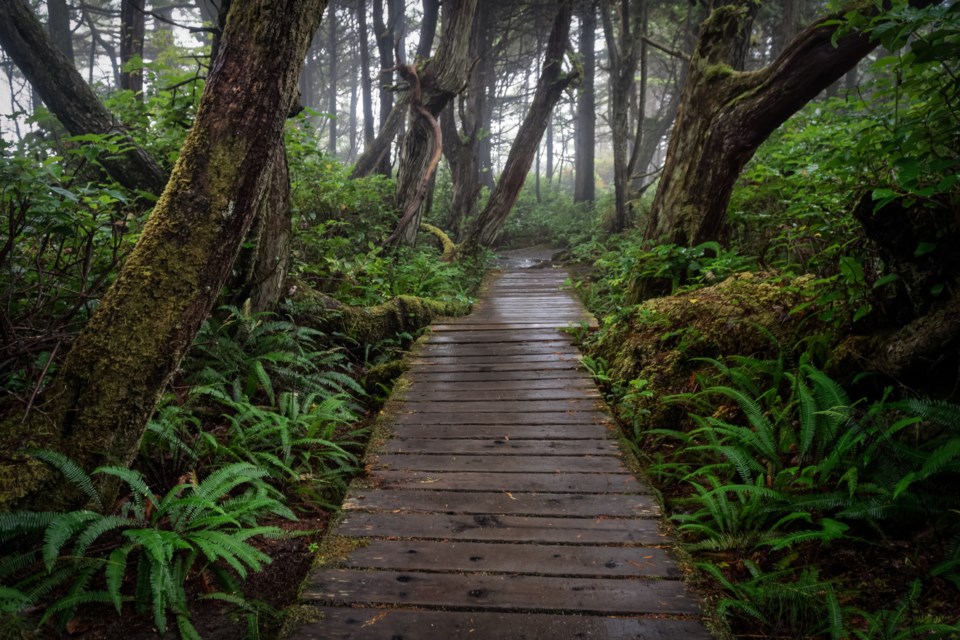As BC tourism industry officials analyze 2019 while they prepare for 2020, the overall state of the sector appears to be stable.
“There are some regions and cities that actually experienced a softening this year,” admits Walt Judas, CEO of the Tourism Industry Association of BC (TIABC).
While the province’s traditional tourism draws in Victoria and Vancouver noticed a slight decline in overall vacation traffic this year, Judas notes visitor numbers in other regions were record setting.
“You can’t argue with what we have and how much of it we have,” boasts Judas, crediting the outdoor adventure sector for being largely responsible for rising international tourism traffic.
While Statistics Canada indicates 2018 was a record year with over 6,000,000 international tourists flocking to BC, Judas is convinced that 2019 was another solid year for international visitors, in part driven by nature and adventure tourism. After all, not everyone gets to see whales or bears in their natural habitat.
“People love wildlife,” says Judas.
The executive director of the Backcountry Lodges of British Columbia Association echoes the sentiment. Brad Harrison, who also chairs the Adventure Tourism Coalition, notes that last year, adventure tourism generated about $3.2 billion in visitor spending across BC.
“People are coming here because they saw a picture of Mount Robson,” says Harrison, stressing how accessible the outdoor experience is here. “You can fly from Vancouver to Cranbrook and be in a backcountry lodge in four hours.”
Harrison is also quick to point out that adventure tourism is focused on sustainability:
“When we consider things such as species at risk, we strongly believe that we can be socio-economic drivers and still attain those species at risk requirements.”
Harrison is also adamant that British Columbia’s recognition of the United Nations Declaration on the Rights of Indigenous Peoples (UNDRIP) is viewed by his sector as more of a prelude to new partnerships than a potential roadblock:
“The landlord is changing in some cases…but this is an opportunity for us to work with a different group and to all move forward to have an even better product.”
Despite its success, British Columbia’s tourism industry also faces serious challenges and uncertainties.
“We can’t find enough people to fill positions,” laments Judas, who cites a labour shortage as the single biggest difficulty facing tourism operators. Judas points to the federal government’s updated tourism strategy unveiled last spring and aims to create 54,000 new tourism sector jobs by 2025 while also placing a greater focus on developing a tourism economy in rural regions.
“Where are you going to find these people?” Judas wonders, noting that BC alone will require 110,000 tourism industry workers by 2028.
Judas also cites a looming pilot shortage as one of the most daunting challenges for tourism and the Canadian economy in general. A recent report from the Canadian Council for Aviation and Aerospace indicates Canada will be short about 3,000 pilots by 2025.
“If you don’t have pilots, you’re not flying into rural communities and building rural tourism,” he cautions.
After two straight years of record wildfires, this year brought a collective sigh of relief for British Columbia’s tourism business. According to Judas, 2019 summer bookings were initially slow which he suspects was the result of well-publicized smoky conditions throughout the province in the summers of 2017 and 2018.
The economic importance of a strong B.C. tourism sector can’t be overstated. In 2017, vacation traffic generated $18.4 billion in revenue – an 8.4% increase over 2016, and a 41.3% increase from 2007. And perhaps most importantly, tourism means jobs for nearly 140,000 British Columbians.
Super, Natural indeed.
As always, I welcome your comments and criticism on Twitter @kammornanchor and email [email protected].
Bob Price is a veteran B.C. broadcaster who anchored the morning news on CHNL radio in Kamloops for the past 30 years. Bob is also a past Webster Award winner whose previous stops included Vancouver and Calgary.
SWIM ON:
- Bob Price talked tourism in May, as the industry grappled with the effects of rising gas prices.
- BC has a hidden paradise for motorcycles - as Doug Firby discovered in the Kootenays.
- It's like tourism. Ada Slivinski on the rise of Halloween tourism - the phenomenon of trick-or-treaters venturing far beyond their own neighbourhoods in search of spooker decor, and full-size candy bars.



